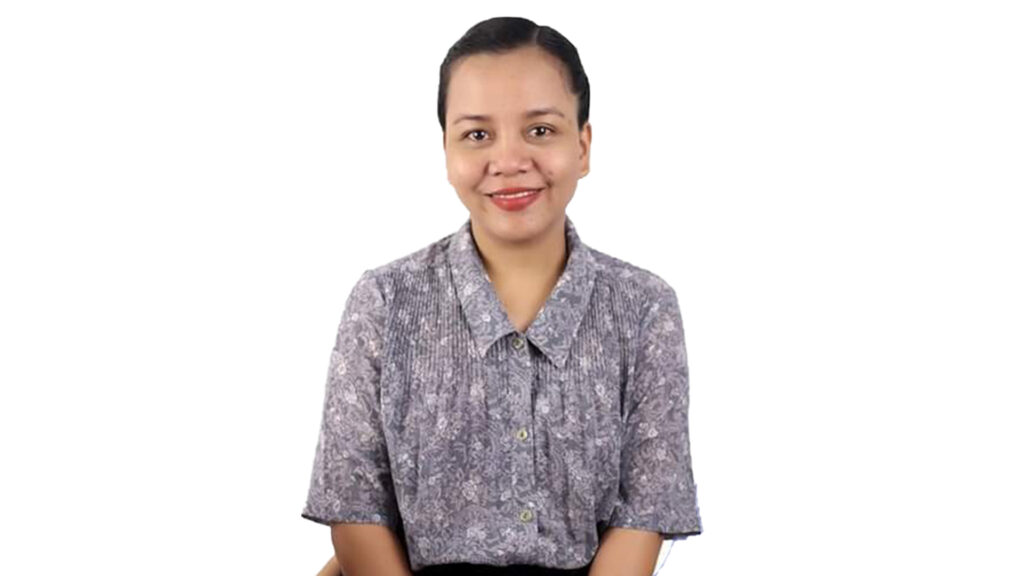Attending and representing the Philippines at the prestigious Luxembourg Global Learning Event of the United Nations Office for the Coordination of Humanitarian Affairs is the latest educational achievement of a former beneficiary of the Department of Social Welfare and Development’s Pantawid Pamilyang Pilipino Program or 4Ps.
Hanelie Millamina-Lopez, from Barangay Canan, Pasacao, Camarines Norte, will be in the European country on 19 to 21 March to embark on another learning journey with the goal to expand her advocacy efforts on indigenous people’s rights.
“She was nominated and eventually chosen to be part of the UN learning activity because of her exemplary articulation and representation on IP rights during an Enhancing Resilient Communities Flagship Initiative in Tiwi, Albay last December 2023,” DSWD spokesperson and Assistant Secretary for Strategic Communications Romel Lopez has said.
“I feel so excited as the event offers me a valuable platform to engage with international peers and effectively enhance my knowledge in working with Indigenous Peoples and other sectors we serve. It serves as a platform not only for learning but also for sharing valuable insights from my own experiences,” Lopez said of the once-in-a lifetime learning opportunity.
As an IP focal, she is to share her experiences and promote the IP rights and social inclusivity at the educational meeting.
Breaking poverty cycle
Lopez is a living testament of the 4Ps power in breaking the intergenerational cycle of poverty through education. The daughter of poor farmer Lauro Millamina and Merlita Millamina, she grew up staying at home and taking care of her other 10 siblings.
“My father is a hardworking farmer, but his income is just enough to meet our daily needs, and often falls short. He often works in other people’s rice fields to provide additional support for our family,” according to Lopez.
Most of the time, Lopez and her siblings went to school without any allowance to buy their meals. They also walked several kilometers to go to school because they cannot afford local transportation.
After finishing their secondary education, she and her older brother decided to stop their schooling to help generate additional income for their family.
In 2009, a beacon of hope emerged in the lives of the Millamina family when they were chosen as one of the beneficiaries of 4Ps.
Contrary to misconceptions about the program, Lopez explained that becoming a 4Ps beneficiary did not foster their family’s dependency on government aid. Instead, the program ignited a flame of determination to return to school, while finding other ways to contribute to their family’s livelihood.
Lopez was able to finish her degree in AB Sociology with cum laude honors in 2015.
She became an Expanded Students Grants-in-Aid Program for Poverty Alleviation scholar at the Bicol University in 2011. The ESGPPA is implemented by the Commission on Higher Education, Department of Labor and Employment, state universities and colleges and DSWD, prioritizing the college education of 4Ps families.
To augment her school allowance, Lopez sold peanuts, yema, cosmetics, and other personal care products to her classmates and teachers. There were also people who helped her and opened their homes when she was studying away from home.
Through prayers and perseverance, she was able to finish her degree in AB Sociology with cum laude honors in 2015.
After graduation, she was hired by the DSWD Field Office-5, allowing her to help their family and support the education of her younger siblings. It also paved the way towards waiving their household’s membership from the 4Ps in 2017.
“We decided to waive being beneficiaries of the program because we saw that we were already capable of supporting our siblings’ education and providing for the daily needs of our family. We also wanted to allow others to experience the opportunity to be beneficiaries so that they could also be helped,” she said.
